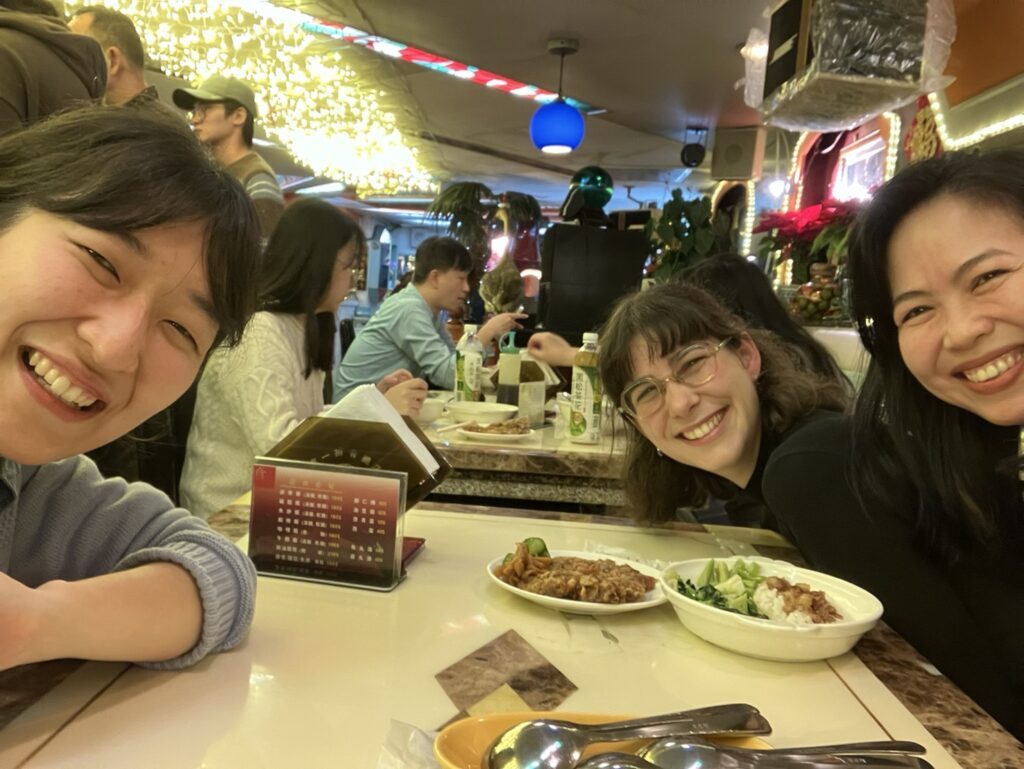Tomoko Takahashi
Assistant Professor, Center for Southeast Asian Studies, Kyoto University
I had the honor to visit Taiwan’s Consortium for Southeast Asian Studies in Asia (SEASIA) member institutions with the funding from SEASIA and Global Collaborative Research (GCR) schemes. The purpose of this visit was to conduct two courtesy calls, as well as to exchange research interests with Taiwan based scholars. I hereby share the rich experience that I enjoyed during my visit from December 22 to 26, 2024.
My first courtesy call was to the Taiwan-Asia Exchange Foundation (TAEF) and The Center for Southeast Asian Studies, National Chengchi University, where Professor Dr. Hsin-Huang Michael Hsiao, Prof. Dr. Alan H. Yang, and Ms. Evelyn Huang greeted me with warmness, inspiration and lots of presents. The discussions went beyond institutional exchanges, as the professors’ cutting-edge expertise were extremely intriguing, and I had a full list of questions that stemmed from reading their works. Aside from substantial questions on specific projects, we also discussed how to think about East Asian academic positionality in an era of both political turmoil and wavering methodological trends. Overall, we agreed that constructive interactions between area studies and social science disciplinary research was more relevant than ever. This was my first Christmas present after coming to Taiwan—rich research discussions with delicious food at a nearby plaza.
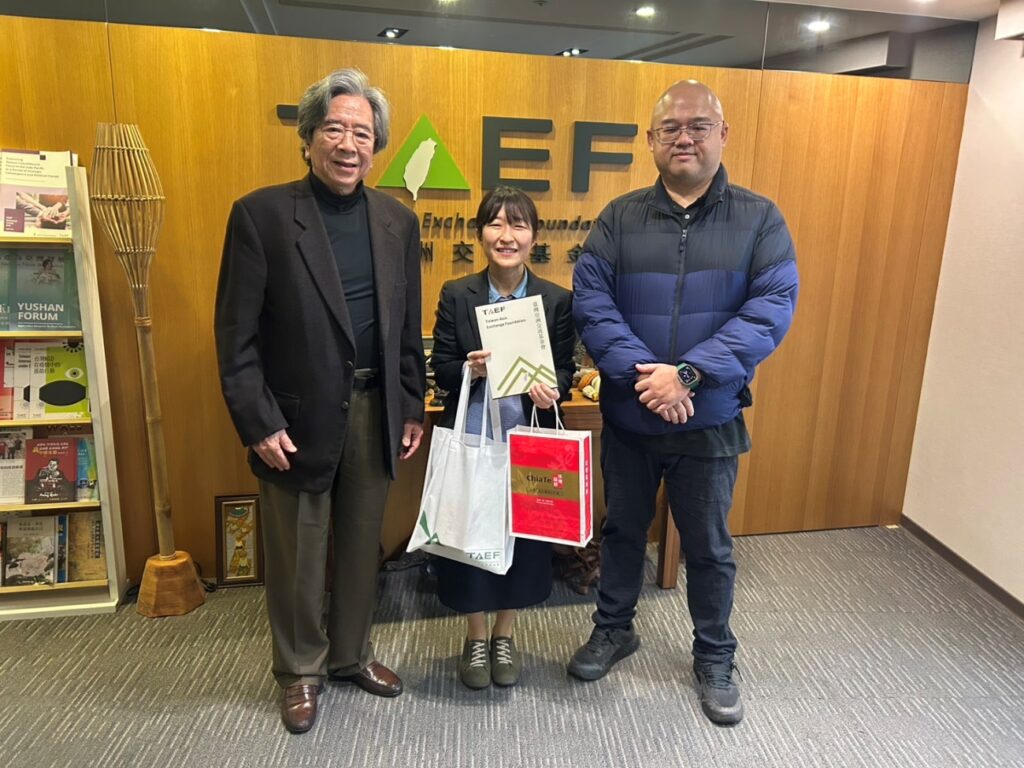
This courtesy call was also extended to the second day, when Professor Yang kindly invited me to give a class at his graduate student seminar on Sino-Southeast Asian Relations from National Chengchi University. The entire class was moved to the TAEF building to accommodate my schedules. As I presented my findings on the topic of “China and Southeast Asia”, Professor Yang and his students gave me a myriad of great comments, and also kindly raised questions pertaining to our shared interests. My presentation centered on the change of the international order, which was analyzed by bridging both the bilateral and multilateral contexts of rising power diplomacy with my dataset on the United Nations. The main idea was to trigger debates on how to speak to the international institutionalists that are centered in the United States and Europe from an East Asian perspective as the epicenter of such change. In response to my interest, I could already feel a surge of younger scholars trying to chime into the debate with their original interests and positionality, which was extremely encouraging to see.
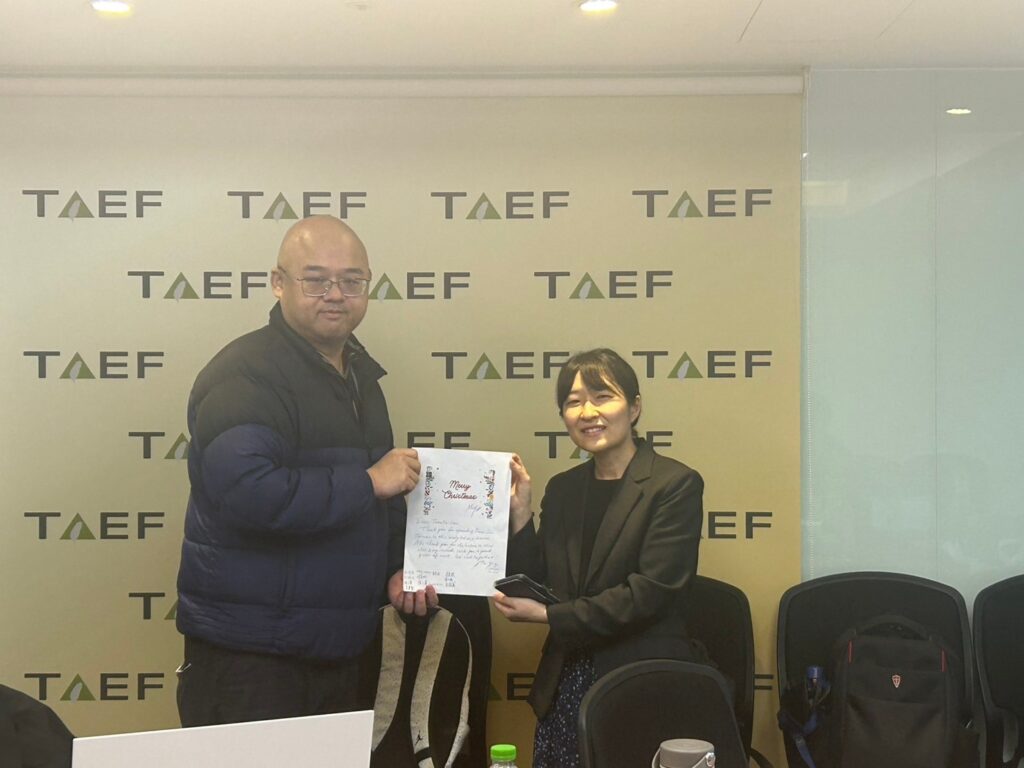
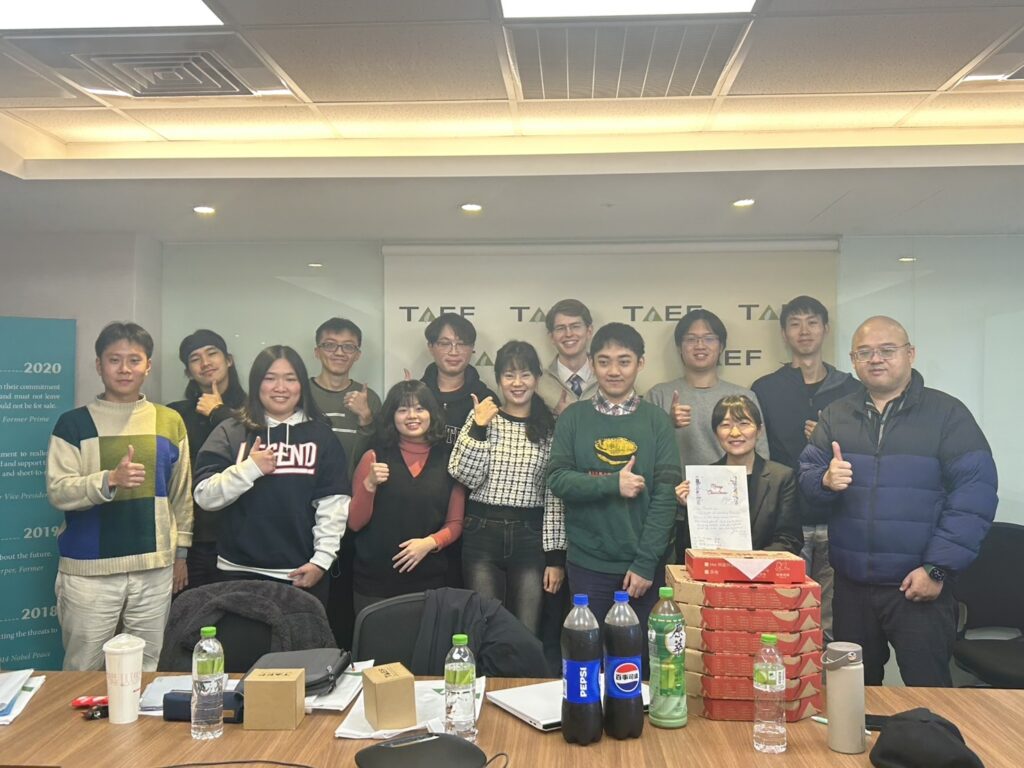
The second courtesy call was made to the Center for Asia-Pacific Area Studies (CAPAS), Academia Sinica. I was warmly welcomed by their former Executive Director, Prof. Dr. Wen-Chin Chang, whom I had also been able to meet at our Association of Southeast Asian Nations (ASEAN) Secretary-General’s event that happened in Kyoto just a few days before my visit. She kindly introduced me to CAPAS’s new Executive Director, Professor Dr. Wei-Hsian Chi, as well as Dr. Yu-sheng Lin, who received his doctoral degree at the Graduate School of Asian and African Area Studies (ASAFAS) and definitely knew more about Kyoto University than me. It was also very nice to gather with Dr. Miriam Jaehn, who had been a great colleague of mine at CSEAS and has been welcomed as a postdoctoral researcher at CAPAS recently.
In addition to feeling the personal connections that we share between the two partner institutions, I was mesmerized by the colorful posters of events they organize at CAPAS, as well as their vibrant corridor interactions with scholars. I was also touched to see that magazines issued by CSEAS was displayed among the other area studies journals at their institution, and also to learn that they have plants in their well-designed courtyard, which engendered a welcoming touch resonant to the one that I feel at home. I realize that area studies researchers share a sense of warmth and willingness to learn about the lives of individuals, which culminates in a special and common atmosphere, even though we are geographically apart.
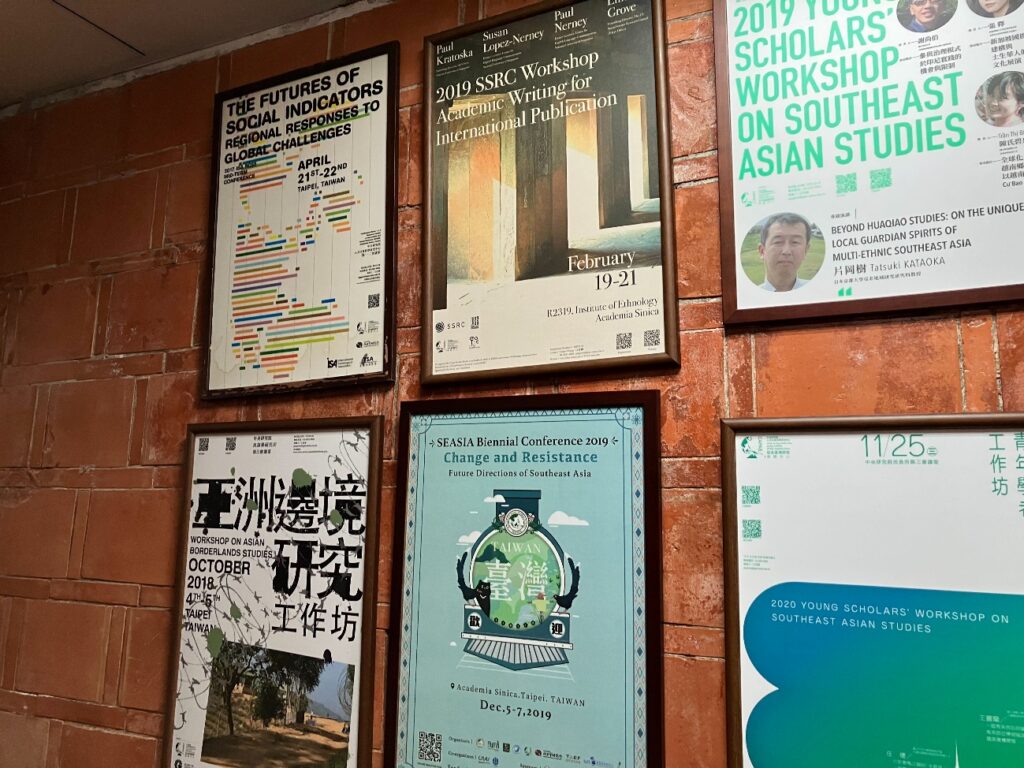
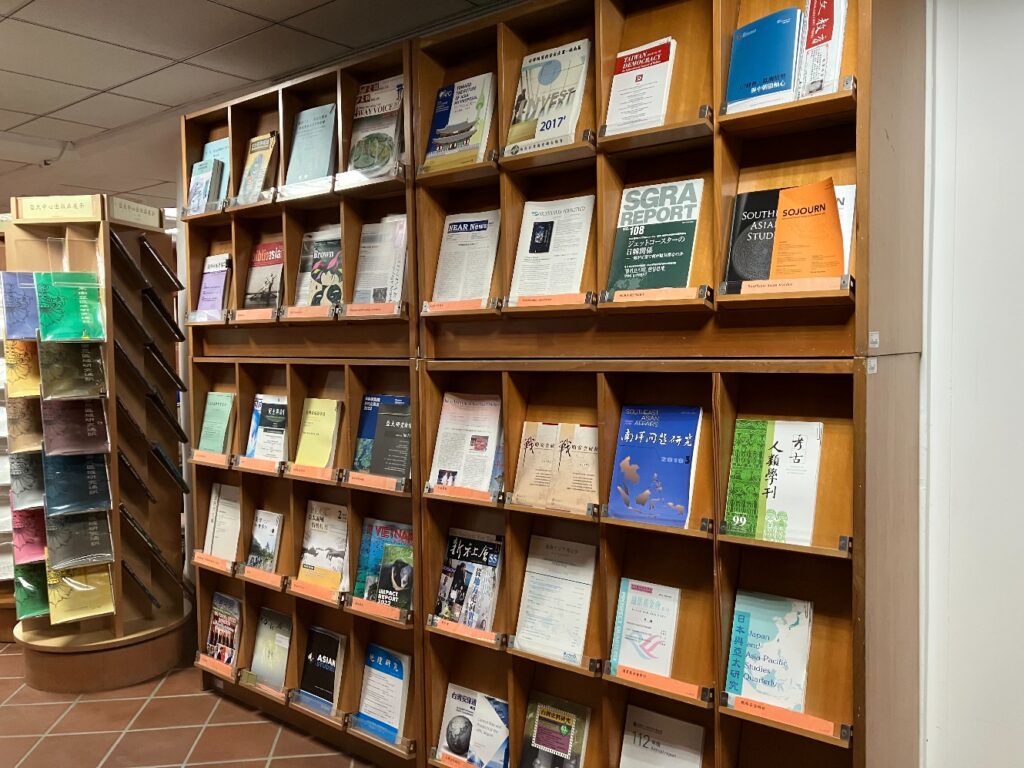

Aside from the official courtesy calls, I was also able to enjoy some archival research at Academia Historica. It was refreshing to go through documents that I have always been looking for in their online catalogue. On the final night of my stay, I was able to meet up with Dr. Miriam Jaehn (CAPAS, Academia Sinica) and Dr. Yi-Chin Wu (Department of Geography, National Taiwan Normal University), former cohort members of CSEAS’s 47th Southeast Asia Seminar. I was very happy to be able to celebrate the anniversary of our friendship, as we caught up with each other in a vibrant Taiwanese restaurant and café.
